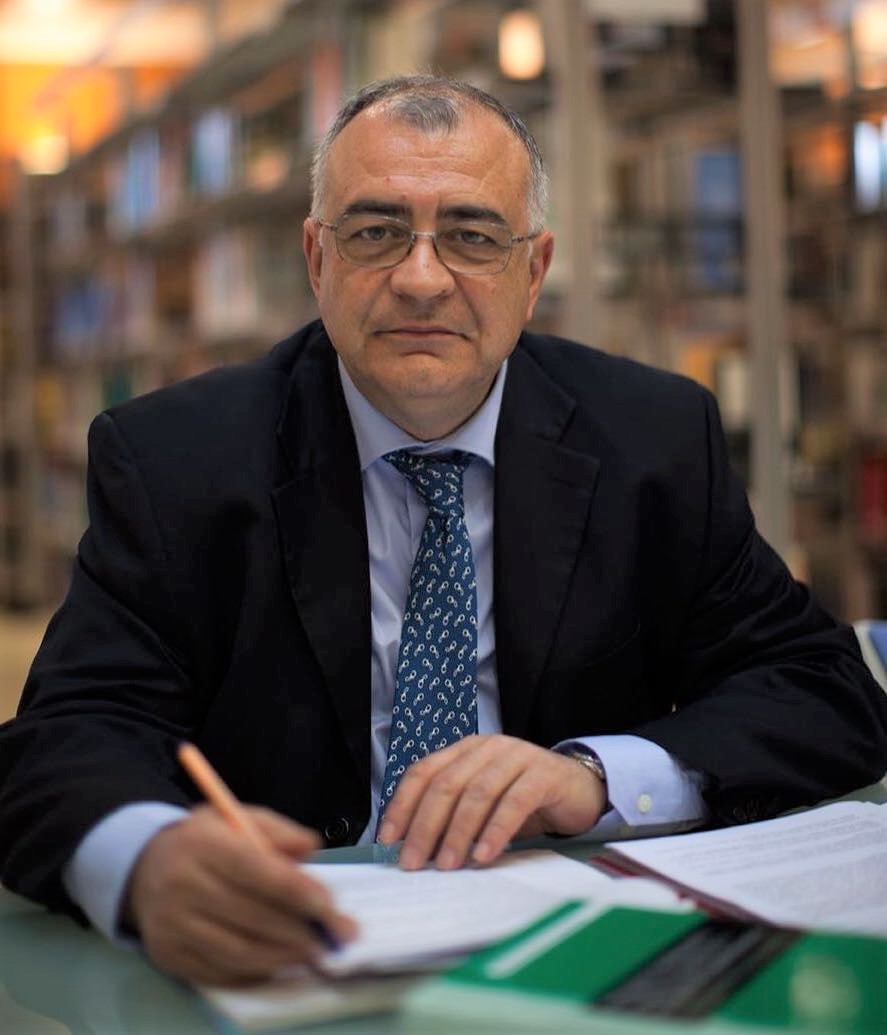On Winners will be announced in March, Radio France International (RFI) interviewed al Mr. Dean of the Faculty of Arts and Humanities, Mr. Miguel Ángel Esparza Torres, Professor of the area of General Linguistics, On the first bilingual Spanish-French dictionary, on the occasion of the 29th Week of the French Language and Francophonie. For listen the complete interview on the program "Paris America", click here (from minute 12.30). A small excerpt of this can also be found here.
 About this dictionary, we know that the First editions were driven by the rise of Spanish at the French court, with reason for dynastic weddings, such as that of Louis XIII with Anne of Austria, or that of Louis XIV with María Teresa of Austria. He The first known is that of Cesar Oudin, dated 1607. and that, as the Professor indicates, it was appointed Official Secretary of Languages at the French court, becoming a essential character in this. However, there is evidence, in previous years, of names that already reveal the spirit of the times: specifically, that of a certain N. Charpentier who, a year earlier, would have beenor condemned to die, crossed out hispanophile y conspirator.
About this dictionary, we know that the First editions were driven by the rise of Spanish at the French court, with reason for dynastic weddings, such as that of Louis XIII with Anne of Austria, or that of Louis XIV with María Teresa of Austria. He The first known is that of Cesar Oudin, dated 1607. and that, as the Professor indicates, it was appointed Official Secretary of Languages at the French court, becoming a essential character in this. However, there is evidence, in previous years, of names that already reveal the spirit of the times: specifically, that of a certain N. Charpentier who, a year earlier, would have beenor condemned to die, crossed out hispanophile y conspirator.
Regardless of the changing fashions and relations between the main European powers of the time, the creation of the Oudin's dictionary was an important milestone even for our own history. Due to her great knowledge of languages, the author of it knew keep record very well for its creation, to such an extent that even Sebastián de Covarrubias, author of the first monolingual Spanish dictionary in 1611, he used the work of the Frenchman for creating your own. And, in turn, Oudin used Covarrubias for the second edition of the bilingual dictionary.
Also noteworthy is the importance of dictionaries as testimony of the language of the time, being a type of production which arises from the need for understanding between the two languages, which triggers linguistic reflection and material production. In this process, the development of trade routes between the 16th and 17th centuries played a key role: "Actually, There have been researchers who have reconstructed the editorial centers of production of works based on the commercial routes, since there were two great commercial lines that crossed all of Europe: the one that goes from Florence, Avignon, Lyon and the other is Venice, Genoa, Milan, Frankfurt, Cologne, Antwerp. Curiously, It turns out that the towns that I have mentioned are precisely where the editorial centers and printing presses were located."says Professor Esparza.
The dictionaries, he continues, were preceded by other works of a different nature: guides for travelers and merchants, having a rich variety of vocabulary, which included a visual glossary of words, numbers, days of the week, dialogues from everyday life, models of letters and documents, invoices, debt documents or prayers of Christian travelers themselves. The peculiarity of dictionaries lies in the fact that they also allow two types of reading: the vertical, which occurs when searching for a term and the horizontal, when we have already found it.
When asked about the current changes in the language due to the increasing introduction of anglicisms, Professor equates the process with the influence that, in his day, Spanish also had. Historically, Until the 18th and 19th centuries, it acquired a predominant role in the international arena, which went hand in hand with imperial expansion, witnessing a close relationship between “language and power”, to which already Antonio de Nebrija had been referred to previously.
How to Live Aligned with final reflection and given the introduction, sometimes unnecessary, of foreign words, the Professor Esparza highlights the importance of education for promoting knowledge and appreciation of one's own language and literature. The languages are, by its very nature, treasures in themselves, Ya que contain many cultural values and are testimony of each historical moment, so they must take care y protect oneself as inheritance for future generations.
From the Faculty of Arts and Humanities we congratulate Mr. Dean for his intervention and his contribution to the study of linguistics.

